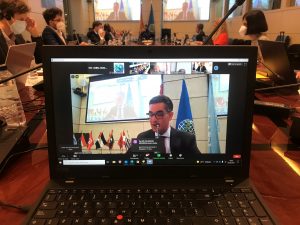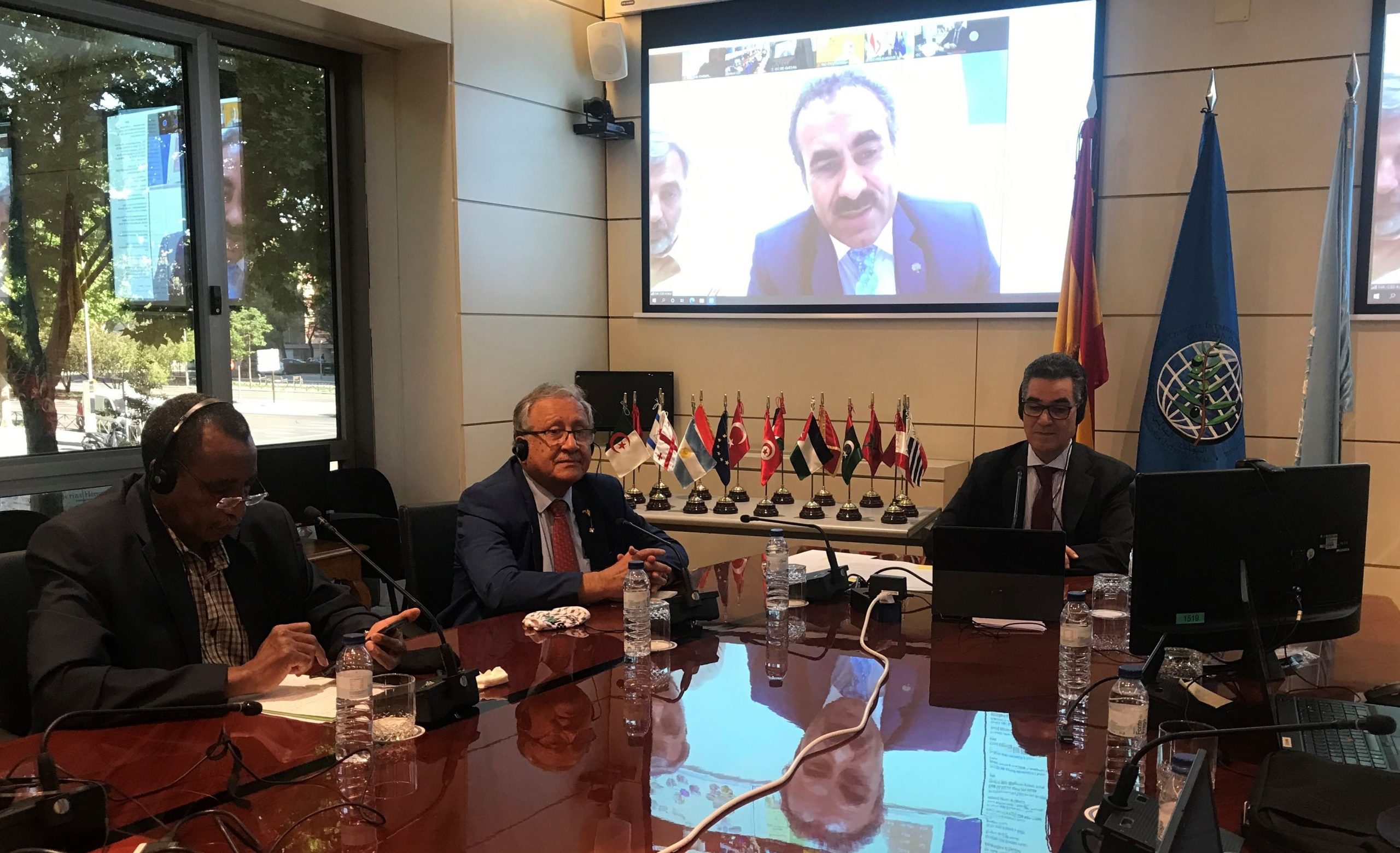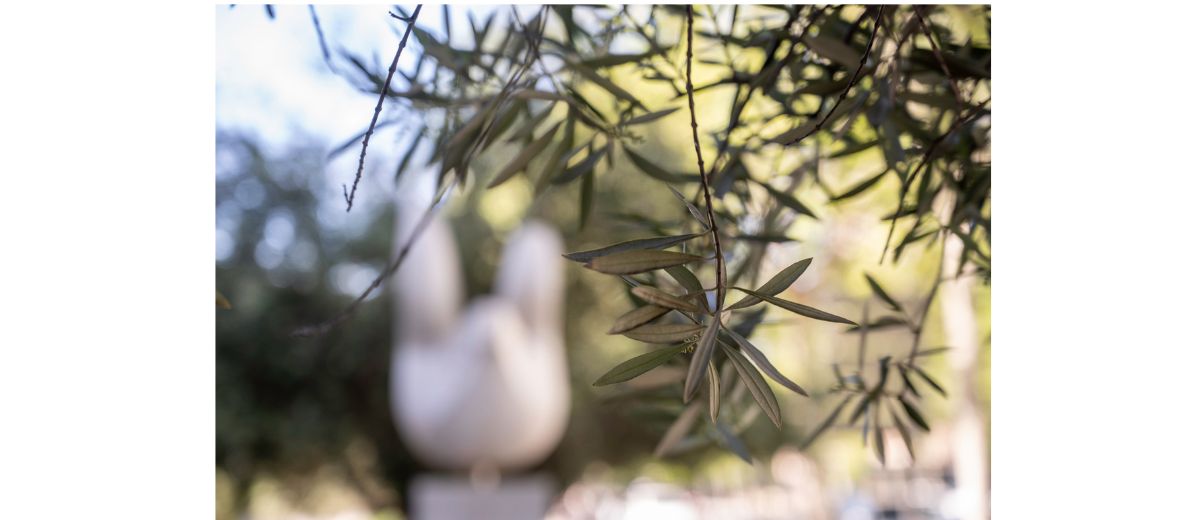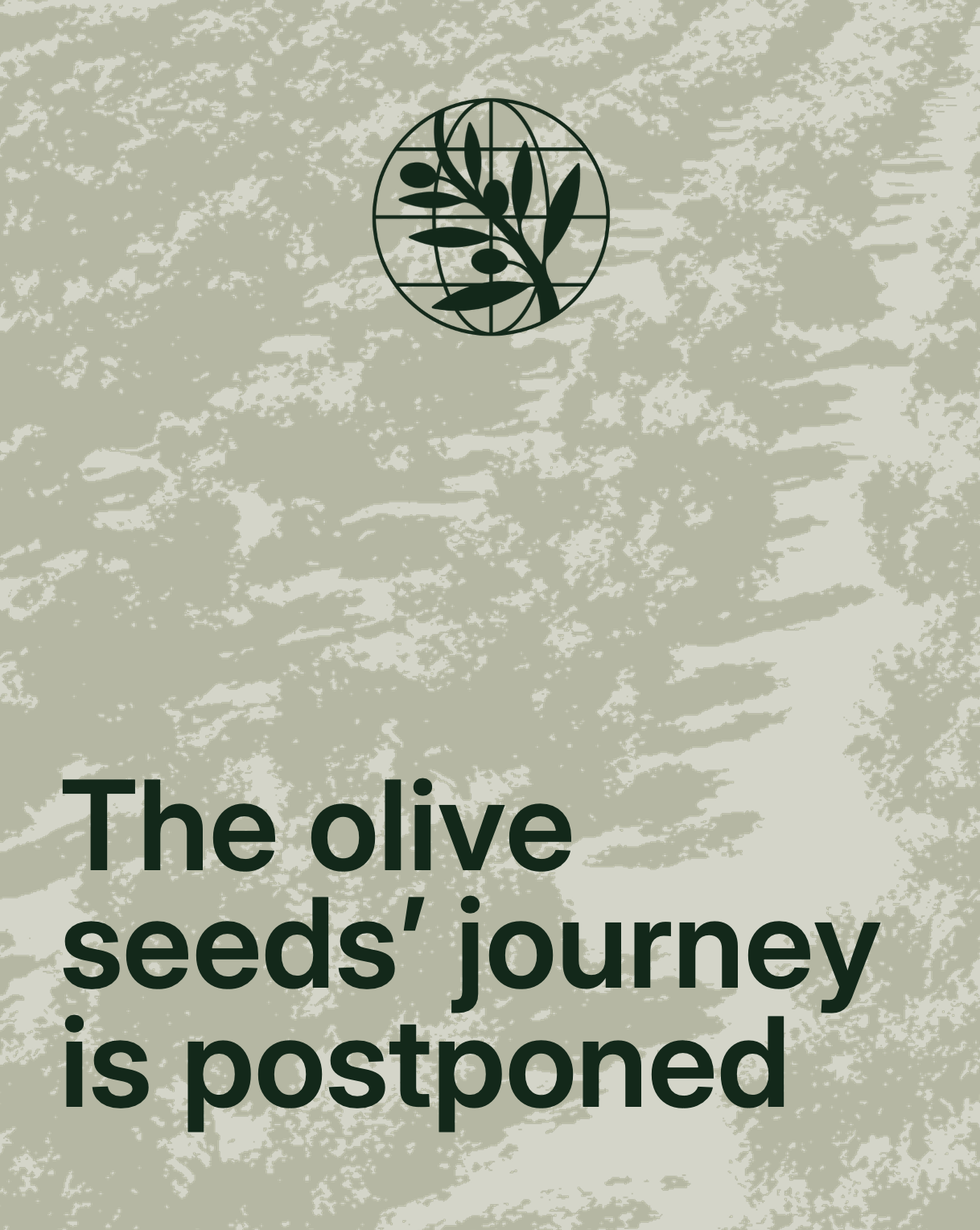 The IOC and the FAO have formalised their relationship, recognising the important role the two institutions play in the development of the olive sector. Together, they drew up a collaboration agreement that was signed during the plenary session of the 113th session of the Council of Members of the IOC. The agreement was signed by Abdellatif Ghedira, the Executive Director of the IOC, and Mohammed Manssouri, the Director of the FAO Investment Centre, live from their respective headquarters in Madrid and Rome.
The IOC and the FAO have formalised their relationship, recognising the important role the two institutions play in the development of the olive sector. Together, they drew up a collaboration agreement that was signed during the plenary session of the 113th session of the Council of Members of the IOC. The agreement was signed by Abdellatif Ghedira, the Executive Director of the IOC, and Mohammed Manssouri, the Director of the FAO Investment Centre, live from their respective headquarters in Madrid and Rome.
 As defined in the objectives of both institutions, their role is complementary and crucial to:
As defined in the objectives of both institutions, their role is complementary and crucial to:
- ensure food security, through establishing internationally harmonised legislation, thus protecting consumers and producers;
- make the olive sector more productive and sustainable, through promoting technical cooperation and the transfer of technology and through supporting research and development initiatives, both in the areas of olive gene sources and of olive growing, olive oil technology and the environment;
- reduce rural poverty, through promoting the consumption of olive products, the dissemination of information on the olive economy, and improving the business climate for investment;
- enable inclusive and efficient olive food systems, through promoting environmental conservation and sustainable production, sharing data, knowledge and expertise related to the olive value; and
- increase the resilience of the olive sector, through encouraging the exchange of information and experience in the phytosanitary field of olive growing and on the preservation of olive gene sources.
 Formalising this relationship though a Memorandum of Understanding is a mere formality that reinforces an already long-standing cooperative relationship, laying out the terms and conditions for collaboration to develop, promote and strengthen joint activities to support a more efficient and sustainable olive sector.
Formalising this relationship though a Memorandum of Understanding is a mere formality that reinforces an already long-standing cooperative relationship, laying out the terms and conditions for collaboration to develop, promote and strengthen joint activities to support a more efficient and sustainable olive sector.
These actions shall aim at, among other things:
- developing a programme of activities to (i) increase the capacities of institutional and private operators all along the value chain; and (ii) raise awareness of olive oil quality amongst stakeholders;
- leveraging the IOC’s and the FAO’s knowledge and expertise on plant protection, particularly on Xylella fastidiosa, to provide coordinated messages on the subject to FAO and IOC members;
- leveraging the IOC’s and the FAO’s knowledge and expertise on genetic resources to plan and implement activities related to the identification, preservation and utilization of olive genetic resources in collaboration with FAO and IOC member countries; and
- collecting and disseminating clear, accurate information and statistics on the olive and olive oil supply chain and markets.
Putting these actions into force will allow us to:
- share and disseminate knowledge on new trends and drivers that can impact the development of the olive sector;
- develop educational material, training and awareness-raising activities on olive oil quality and sustainable production practices;
- promote technical collaboration to support policy dialogue in the olive oil sector.
‘Formalising this relationship through a Memorandum of Understanding lets us frame the scope of our already long-standing relationship’, said Executive Director Abdellatif Ghedira. ‘It sets out the terms and conditions of collaboration so that we can develop, promote and strengthen joint activities to support a more efficient and sustainable olive sector’.
The Memorandum is a first step in what is hoped to be a very fruitful and lasting relationship, to strengthen and energise the olive sector around the world.










